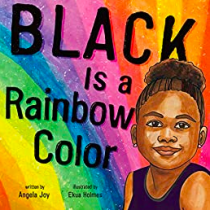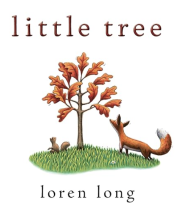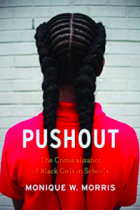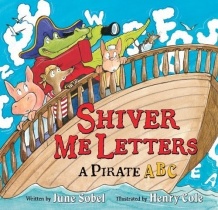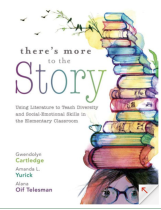This week was absolutely exhausting due to the fact that we finally taught a full five days! The beginning of this week started off somewhat shaky. The students are becoming more comfortable with each other and so talking in between transitions within the classroom has become my main challenge. I had to physically move a student’s desk one day so that she was forced to pay attention to the lesson instead of choosing to talk to her friend. Moving name tags around twenty or thirty minutes before class starts has become a routine.
Unfortunately, I have come to realize that there is no such thing as a ‘perfect classroom combination.’ At the same time, I have come to realize that I actually enjoy it when the students become so excited about a particular topic that they want to talk about it.
This week was a week of many firsts. I finally was observed during a lesson that I was truly proud of. I decided to call our Monday lesson “Building Bridges” because the students were learning the importance of identifying transition words, writing transition words and then using them properly within a paragraph. We started out by discussing what a transition word is and watched an awesome transitions video by Flocabulary that allowed the students to hear transition words being used and circle the transition words at the same time. The video was about modern video games which was not only appealing to the few males in my class but also the females. I feel like I am finally completing see say do cycles without having to think much about them. I was truly proud of the lack of ‘fluff’ within this lesson and my ability to think creatively while also using time management.
Unfortunately, my second day did not run quite as smoothly. In all of my methods classes, the teachers have discussed the importance of having one, two or even three back up plans in the case that the technology decides not to work correctly. I came into the classroom on Tuesday only to find that my smart board was no longer displaying my desktop which means my power point was unable to be displayed. In a panic, I decided to write out all of my slides on large pieces of paper so that I would have some kind of visual during the lesson. Although I was proud of myself for thinking on my feet, I was still unhappy with the way the lesson turned out.
Many of the students were confused by the personal narrative outline and graphic organizer, and I felt myself needing to repeat directions three or four times before they understood what they were supposed to be doing. Many of them could sense that I was unhappy, so they chose not participate during the lesson. On Tuesday I learned that there will be bad days of teaching. There will be days when you want to go home and simply cry. However, it is important to remember that those days don’t last forever and it is what you choose to do with this bad day that really matters.
Wednesday, Thursday and Friday were probably my favorite three days out of this entire summer experience thus far. Wednesday I taught a lesson that I was truly passionate about. We spent a whole class period discussing the importance of a captivating lead-in using the movie “Lincoln” as our do now activity. I had the students watch two minutes of the Lincoln trailer and then I asked them to analyze what was going on in this trailer. Why was it captivating? What music was played throughout? What visual effects occurred? The students were extremely fascinated by this activity and it provided an excellent lead-in into the importance of a solid, captivating introduction when writing a personal narrative essay. After I discussed the different types of lead-in’s the student’s could use, they rotated through different stations to analyze different lead-in’s and create new ones of their own. I was happy with my first attempt at stations within the classroom, but I soon realized that what I thought would take five minutes actually took a lot longer. It would have been more effective if I hadn’t made the questions as lengthy or as complicated.
On Thursday, we went over the different types of conflicts that may occur within a personal narrative using “Remember the Titans” as the focal point of this lesson. The students thoroughly enjoyed listening to the clips and talking about the conflict that was being discussed in the story line. However, my proudest moment came on Friday when I decided to change my method of teaching. Prior to this lesson, my mentor teacher had talked with me about my Monday lesson she had observed. She agreed that I had mastered my say-see-do cycles, but she mentioned the fact that my classroom management was not the best. Her philosophy was different than mine because she believed that there should never be any talking from a student unless he/she raises their hand and waits to be called on. I realized then that my philosophy had been different.
In my opinion, some of the best teachers I had in grade school were the ones that managed the classroom without expecting complete silence. Nevertheless, I agreed with her in admitting that I was not very consistent with my classroom management. On Friday, I decided to implement a training day of personal narrative boot camp. I dressed up in army pants, taped specific rules down on every desk and asked that they say ‘mame’ at the end of every question. Yes, this was somewhat of an elementary education idea, but it worked! The director of the program had decided to surprise visit me that morning only to come in and find a well-behaved group of cadets who were engaged with my lesson and eager to learn the purpose behind dialogue.
The second half of class I tried my hand at my very first personal narrative writing workshop. Every student had their very own cadet workstation around the classroom and there was enough space in between each student to prevent talking. I put on calming music and had conversations with each student about the introduction they had written, their lead-in, etc. I allowed some of the students to work on my computer to search for quotes that would fit their scenario. One of my students who struggled with writing and reminded me everyday that it was his least favorite subject, became so excited over the quote he had found for his baseball essay that he asked if he could share it with the class. Of course, I let him break the silence because I was so proud that he had finally done something that he was truly proud of.
I learned this week that you cannot let one bad lesson ruin the rest of your week. I also learned that it is healthy to keep the students guessing about what game or boot camp you are going to do next. In addition, I learned that students respond better to examples when you personalize them and use their names within the sentences. The more humorous your examples are, the more memorable they will be for the students. I have ended my third week feeling confident and excited about these personal narratives. I think I am improving as a teacher, constantly changing my teaching philosophy and keeping a growth mindset.


